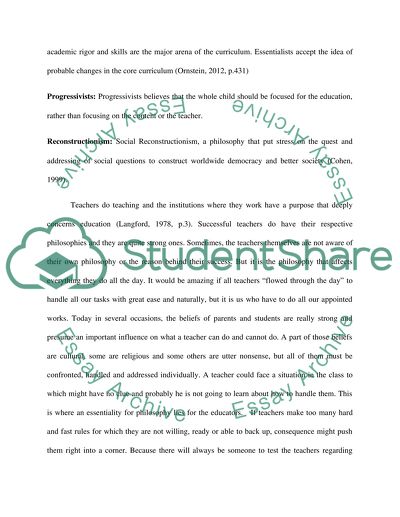Cite this document
(“Necessity of Philosophy of Education for Teachers or Educators Essay”, n.d.)
Retrieved from https://studentshare.org/education/1482723-necessity-of-philosophy-of-education-for-teachers-or-educators
Retrieved from https://studentshare.org/education/1482723-necessity-of-philosophy-of-education-for-teachers-or-educators
(Necessity of Philosophy of Education for Teachers or Educators Essay)
https://studentshare.org/education/1482723-necessity-of-philosophy-of-education-for-teachers-or-educators.
https://studentshare.org/education/1482723-necessity-of-philosophy-of-education-for-teachers-or-educators.
“Necessity of Philosophy of Education for Teachers or Educators Essay”, n.d. https://studentshare.org/education/1482723-necessity-of-philosophy-of-education-for-teachers-or-educators.


